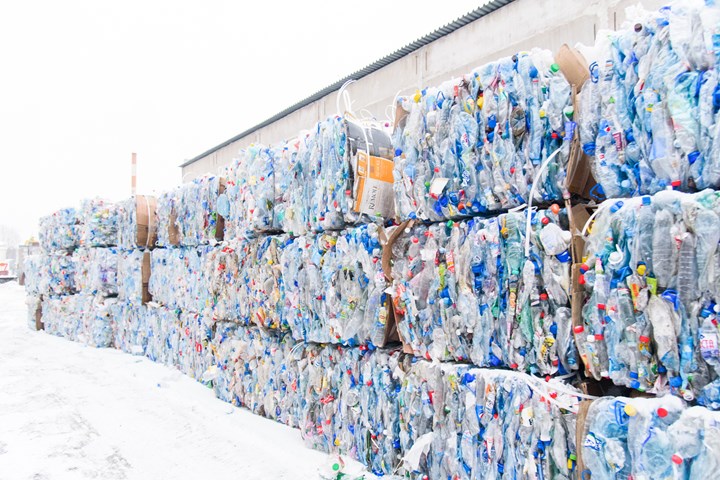Certified Circular PC Resin and Blends
SABIC’s launch of PC made from the upcycling of mixed plastic PCR said to be a first in the industry
Certified circular PC resin and blends made from the upcycling of post-consumer mixed plastic, said to be a first in the industry, have been launched by SABIC. Part of SABIC’s Trucircle portfolio of circular solutions, the certified circular PC is produced through a pyrolysis process whereby difficult-to-recycle used plastic is broken down into a liquid called pyrolysis oil. This is then used as a feedstock to create certified circular building blocks for high-performance plastics with the same properties as the virgin material – in this case, Lexan PC as well as such PC blends as the company’s Cycoloy and Xenoy.

The new certified circular PC reportedly can be used under identical process conditions to those used for its incumbent across industries such as electrical & electronics, automotive, healthcare, building & construction and consumer goods. This PC is certified by an independent third party under the International Sustainability and Carbon Certification (ISCC PLUS) scheme using a standardized mass balance approach, which provides a method of asserting the recycled material content along predefined and transparent rules. In addition, the widely recognized ISCC PLUS accreditation provides traceability along SABIC’s physical-linked supply chain, from the feedstock to the final product, requiring a chain of custody based on the mass balance system. The circular PC offers a potential carbon footprint reduction up to 23% in comparison to its incumbent.
As previously reported, SABIC launched the first PC based on certified renewable feedstock—60% of it is made from tall oil derived from pulp waste, at K2019.
Related Content
-
Advanced Biobased Materials Company PlantSwitch Gets Support for Commercialization
With participation from venture investment firm NexPoint Capital, PlantSwitch closes it $8M bridge financing round.
-
First Quarter Looks Mostly Flat for Resin Prices
Temporary upward blips don't indicate any sustained movement in the near term.
-
Part 3: The World of Molding Thermosets
Thermosets were the prevalent material in the early history of plastics, but were soon overtaken by thermoplastics in injection molding applications.





